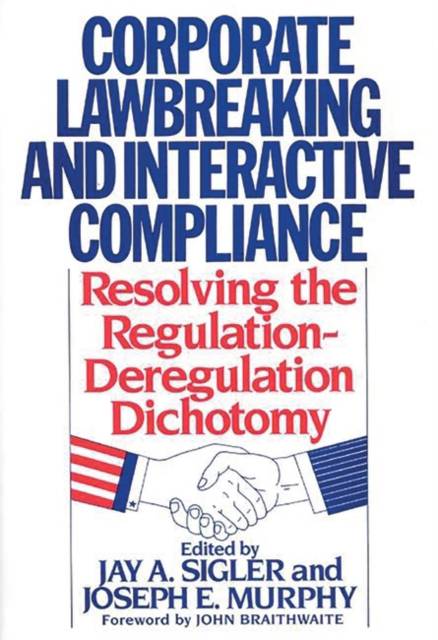
- Afhalen na 1 uur in een winkel met voorraad
- Gratis thuislevering in België vanaf € 30
- Ruim aanbod met 7 miljoen producten
- Afhalen na 1 uur in een winkel met voorraad
- Gratis thuislevering in België vanaf € 30
- Ruim aanbod met 7 miljoen producten
Zoeken
Corporate Lawbreaking and Interactive Compliance
Resolving the Regulation-Deregulation Dichotomy
Joseph Murphy, Jay A. Sigler
€ 161,45
+ 322 punten
Omschrijving
In their book Interactive Corporate Compliance, Jay Sigler and Joseph Murphy proposed a system in which government scrutiny of business is reduced in return for self-regulatory vigilance. In this follow-up collection of essays, Sigler and Murphy seek to meet the challenge of putting such a policy into practice. A series of essays detail a variety of suggestions for implementing such a system, as well as some forms of interactive compliance already in use.
A brief foreword by John Braithwaite is followed by a chapter in which the editors fully explain the compliance approach to business-government relationships. Subsequent contributions include Attorney General Robert Abrams' three-part strategy for corporate compliance, a proposed legal standard to reward corporate due diligence in implementing codes of conduct, accounts of different experiments with interactive compliance in the United States, and a case study using interactive compliance to regulate restaurant health standards. Among the other topics discussed are programs that confront middle managers with corporate criminals, the educational failings of law and business schools, and insights into why negotiated compliance delivers better outcomes at lower costs. The volume concludes with predictions for corporate conduct in the 1990s. With its innovative approach to government-business relations, this work will be an important resource for professionals in all types of business, government, and legal positions.Specificaties
Betrokkenen
- Auteur(s):
- Uitgeverij:
Inhoud
- Aantal bladzijden:
- 224
- Taal:
- Engels
- Reeks:
Eigenschappen
- Productcode (EAN):
- 9780899304908
- Verschijningsdatum:
- 30/06/1991
- Uitvoering:
- Hardcover
- Formaat:
- Genaaid
- Afmetingen:
- 156 mm x 234 mm
- Gewicht:
- 485 g

Alleen bij Standaard Boekhandel
+ 322 punten op je klantenkaart van Standaard Boekhandel
Beoordelingen
We publiceren alleen reviews die voldoen aan de voorwaarden voor reviews. Bekijk onze voorwaarden voor reviews.











